
Emergency Dentist — East Hartford, CT
Compassionate Care When You Need It Most

When dental emergencies happen unexpectedly, our East Hartford team will be here for you. It’s important to stay calm and contact our dental office right away; we will provide guidance about how to handle the situation in the short-term and also help you plan a time to come into the dental office as soon as possible. In many cases, we are able to provide same-day care and immediate relief through emergency in our East Hartford, CT dental office, so you can return to your regular routine without delay. For compassionate care when you need it most, don’t hesitate to call Comprehensive Dental Associates of Central Connecticut.
Why Choose Comprehensive Dental Associates of Central Connecticut for Emergency Dental Care?
- Experienced, Extensively Trained Team of Dentists & Staff Members
- Same-Day Appointments Available for Emergency Patients
- Advanced Technology for Fast Diagnosis and Precise Treatment
What to Do in a Dental Emergency

Whether you break a tooth or your child wakes up with a bad toothache one day, dental emergencies are often sudden and alarming. However, we encourage you to keep your cool! Staying calm will help you act quickly and correctly when it matters most. So no matter what type of dental emergency you’re facing, take a deep breath and follow these steps:
- Step 1: Call us right away to schedule your same-day emergency appointment.
- Step 2: Over the phone, follow our team’s first aid instructions for managing your situation until you can reach our office.
- Step 3: Meet with your East Hartford emergency dentist so they can evaluate your situation and relieve any pain you may be in.
- Step 4: Review your options as your dentist fully explains all the treatments they recommend moving forward with. Together, you’ll make a custom treatment plan.
- Step 5: Get the fast, professional, and personalized treatment that you need from our experienced team, who will focus on protecting your teeth and getting your oral health back on track.
The Most Common Dental Emergencies
Some dental problems take months or years to develop — and they suddenly manifest themselves in the form of excruciating pain. Other dental emergencies are the result of a sudden trauma, such as an accident or a hard impact during a sports game. We are well-equipped to handle both types of situations. Below, you’ll find the most common dental emergencies we treat, as well as important information on how to handle them at home and how we are likely to treat them once you reach our office.
Understanding the Cost of Dental Emergencies
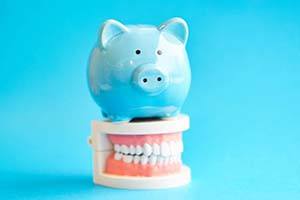
The cost of emergency dentistry in East Hartford varies from case to case. If you just need a simple prescription or filling, you will pay less than if you need a major treatment, such as a crown or root canal therapy. During your appointment, we will be transparent about the price associated with any recommended procedure. We will also help you explore avenues that can make your treatment easier to afford, such as insurance and financing.
Every Dental Emergency Is Different

Dental emergencies can vary greatly in their nature and severity. We cannot provide cost estimates until we have a chance to examine you in person. Some people need something as simple as a filling or prescription mouthwash to get their oral health back on track. However, if you have a broken tooth or another serious problem, you may require more extensive, and more costly, treatment, such as root canal therapy and a crown. After we assess the situation, we will be able to discuss with you all of your treatment options, including their pros, cons, and price.
Does Dental Insurance Cover Dental Emergencies?
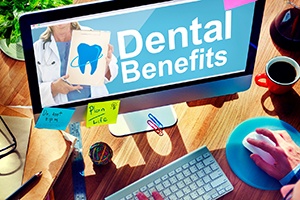
Many dental policies cover one emergency exam per year. It is also common for them to provide 50 – 80% coverage for the treatments that are often used in emergency dentistry. Of course, you will need to check the specific details of your policy to learn how it applies to any given situation. Our team accepts payment from virtually all PPO plans, and we will be happy to help you navigate your benefits and file your claims.
Other Options for Making Dental Emergencies Affordable
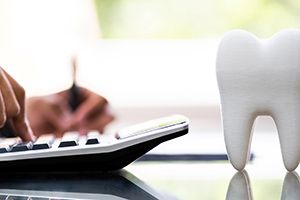
As your emergency dentist in East Hartford, we do not want you to be stressed about the financial aspects of your care. That is why, in addition to helping you with insurance, we offer other provisions to help you afford your treatment:
- Most patients qualify for financing through CareCredit. If your application is approved, you may be able to choose between several different low-interest payment plans. In many cases, no-interest financing is even an option.
- Essential Dental Plan. This savings plan is designed for patients without insurance. In exchange for a reasonable fee, it provides discounts on virtually all the services we provide, including those used to treat emergency situations.
Taking Care of Your Smile Can Save You Money

Some dental emergencies are the result of a sudden, unpredictable accident. However, most of them can be prevented. Your diligence in taking care of your smile may help you save a significant amount of money. For example, while insurance typically covers restorative care at 50 – 80%, it usually covers preventive care at 100%. For nothing out of pocket, you could enjoy regular cleanings and exams, which will allow us to spot most developing problems well before they lead to an emergency.
Also, keep in mind that if you ever suspect something is wrong with your oral health, it is best to seek treatment sooner rather than later. What begins as a small cavity could develop over time into major decay, which costs more to treat.
How to Prevent Dental Emergencies

Our team is always ready to serve as your emergency dental office in East Hartford. However, we are sure that you would prefer not to have to deal with an emergency in the first place. Below, you will discover some practical and simple ways in which you can protect your teeth and reduce the risk that you will encounter a serious and urgent oral health problem.
Visit Your Dentist Regularly
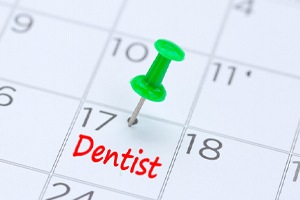
It is recommended that everyone visits their dentist twice a year. At these appointments, we have the opportunity to identify developing problems before they become serious and start to cause you pain. Additionally, thorough dental cleanings remove plaque and tartar from your teeth, which can prevent decay and reduce your risk of developing gum disease. We also provide practical guidance on at-home care that can help you to care for your teeth and gums between your dental appointments.
Maintain Good Oral Hygiene Habits at Home

Thorough at-home oral hygiene is one of the primary ways to prevent dental emergencies in East Hartford. Here are a few reminders on how to maintain a clean and healthy mouth:
- Brush your teeth twice a day. Be sure to clean along your gumline and the backs of your teeth.
- Floss once a day. If flossing is difficult or uncomfortable, you might try a Waterpik® instead.
- Use a mouthwash if your dentist recommends. A mouthwash can kill bacteria and may provide other oral health benefits as well.
Watch What You Eat

Sugary and starchy foods contribute to plaque formation on the teeth, so it is best to enjoy them only in moderation. Also, keep in mind that acidic foods can erode the tooth enamel, leading to sensitivity and other problems. Hard foods, like jawbreaker candies, have the potential to break your teeth. It is best to focus on eating a diet that is full of tooth-friendly nutrients, like calcium, vitamin D, and phosphorous.
Wear a Mouthguard

If you play sports, you should always wear a mouthguard when you are practicing or participating in games. An over-the-counter mouthguard can provide a degree of protection, but custom guards from a dentist are more comfortable and more effective.
If you grind your teeth at night, you should invest in a different type of mouthguard, which will place a barrier between your upper and lower teeth to prevent them from causing mutual harm.
Use Tools, Not Teeth, to Open Packaging
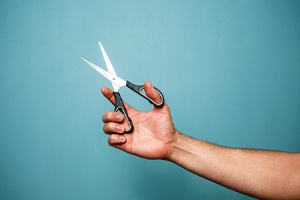
Many people are in the habit of using their teeth to open snack bags, cut the tags off of new clothes, and even trim their fingernails. However, such activities could easily cause your teeth to chip or break. Instead of using your teeth as a tool, use scissors or another appropriate item to help you accomplish the task in front of you. You might find it useful to keep a foldable pair of scissors or a small knife in your wallet or purse.
Dental Emergency FAQs

The team at Comprehensive Dental Associates of Central Connecticut is ready to help you with all of your urgent oral healthcare needs. Before you choose us as your emergency dentist in East Hartford, however, you may want to learn more about emergency dentistry and how to handle various situations. Below, you will find answers to a few frequently asked questions. If you do not find the information you were hoping for, give us a call so we can personally assist you.
Will My Toothache Go Away on Its Own?
Teeth cannot heal themselves, so it is unlikely that your toothache will go away on its own. However, there are a few exceptions. If your pain is caused by a structure close to a tooth, rather than the tooth itself, the issue may resolve without the need for professional treatment. It is also possible for the nerve inside a tooth to die. When that happens, it can no longer send pain signals to your brain. However, that is not a good thing. The infection that caused the toothache in the first place may still be present, and it can spread to nearby tissues. It could even cause severe systemic illness. Any toothache is a good reason to visit your dentist as soon as possible.
Should I Visit the Emergency Room First for Dental Emergencies?
Hospitals usually do not have the training or equipment to properly handle a dental emergency in East Hartford. Rather than visiting the ER, it is generally best to visit your dentist first for any problems that relate to your teeth or gums. However, there are some exceptions. If you are dealing with any life-threatening symptoms, such as a high fever or uncontrolled bleeding, you should certainly go to the ER. Broken facial bones and difficulty breathing are other reasons to head to the hospital. Later, you can visit our practice for follow-up care.
What Does Throbbing Tooth Pain Mean?
Teeth are made up of different layers. The innermost layer, the pulp, is highly sensitive because it contains the tooth’s nerve. When infection or inflammation irritates the nerve, the result can be severe, throbbing pain. This may happen as a result of decay or physical trauma. Another possible cause of throbbing tooth pain is bruxism (teeth grinding and clenching), which often occurs at night when the person is unaware of what they are doing.
What Should I Keep in My Emergency Dentistry Kit?
Having an emergency dentistry kit can help you to handle unexpected oral health issues in the best way possible. Here are some items that it would be good to keep on hand:
- Sterile gloves (nitrile is best)
- A small storage container with a lid
- Cotton balls
- Dressings and gauze pads
- Denture adhesive
- Orthodontic wax
- Dental cement (or a similar product)
- Petroleum jelly
- A topical anesthetic
- Anti-inflammatory medication (such as ibuprofen)
- Dental floss
- An ice pack
- Contact information for your dentist
- A list of your current medications
- Your dental insurance information
Preventive Dentistry Children's Dentistry Cosmetic Dentistry Restorative Dentistry Dental Implants Orthodontics View Our Services